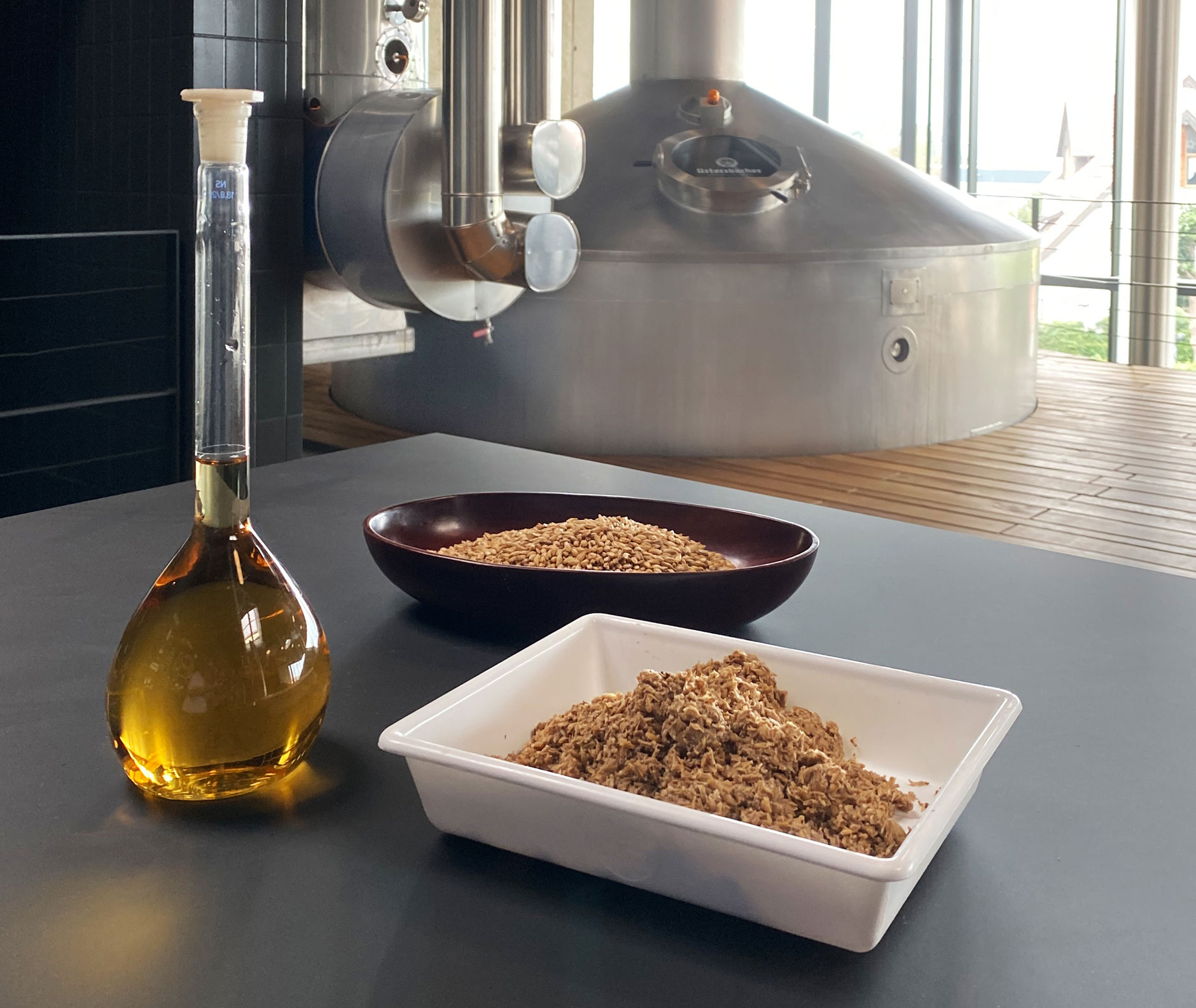First milestone reached in Phoenix BMC development project

- The Phoenix BMC development project is about upcycling residual materials from the brewing process and using them for energy recovery.
- The first module is now up and running in a pilot installation at Ustersbacher Brewery.
- Steinecker has successfully extracted from spent grains and yeast a high-quality protein hydrolysate containing a large percentage of essential amino acids.
At its core, Phoenix BMC consists of three units for processing the various brewing residuals. Protein hy-drolysate and mineral fertiliser are separated out before biogas is derived from what is left. Steinecker has been testing this development project since early 2023 at Ustersbacher Brewery in Bavaria, Germany.
Now, the first module for extracting protein hydrolysate from spent grains and yeast has been put into operation. “Some of the equipment installed for this process – the colloid mill and the membrane filter for the mash – were new to us from a brewing perspective. So, we first had to get a handle on the technology. And after a series of trials, we were able to do just that,” says Dr. Ralph Schneid, who is in charge of product development at Steinecker.
Excellent quality hydrolysate
The Steinecker team didn’t just meet the target metrics – in many cases they exceeded them. “The quality of the hydrolysate is very good – 55 percent of the amino acids we are obtaining are essential amino ac-ids,” says Schneid. That is an important outcome for Steinecker since plant-based proteins are in high de-mand in the food industry right now. “We’re already in touch with companies interested in further pro-cessing the hydrolysate,” says Schneid.
Now that the first module is up and running, the next big task already awaits the Steinecker team in Ustersbach. As Dr. Ralph Schneid reports, “Installation of Module 2 in Ustersbach is already beginning. This module uses acid fermentation to release the remaining nitrogen and an ion exchanger to separate it from the biomass.”
Download

Dr. Anne-Kathrin Bräu

Peter Mörtl